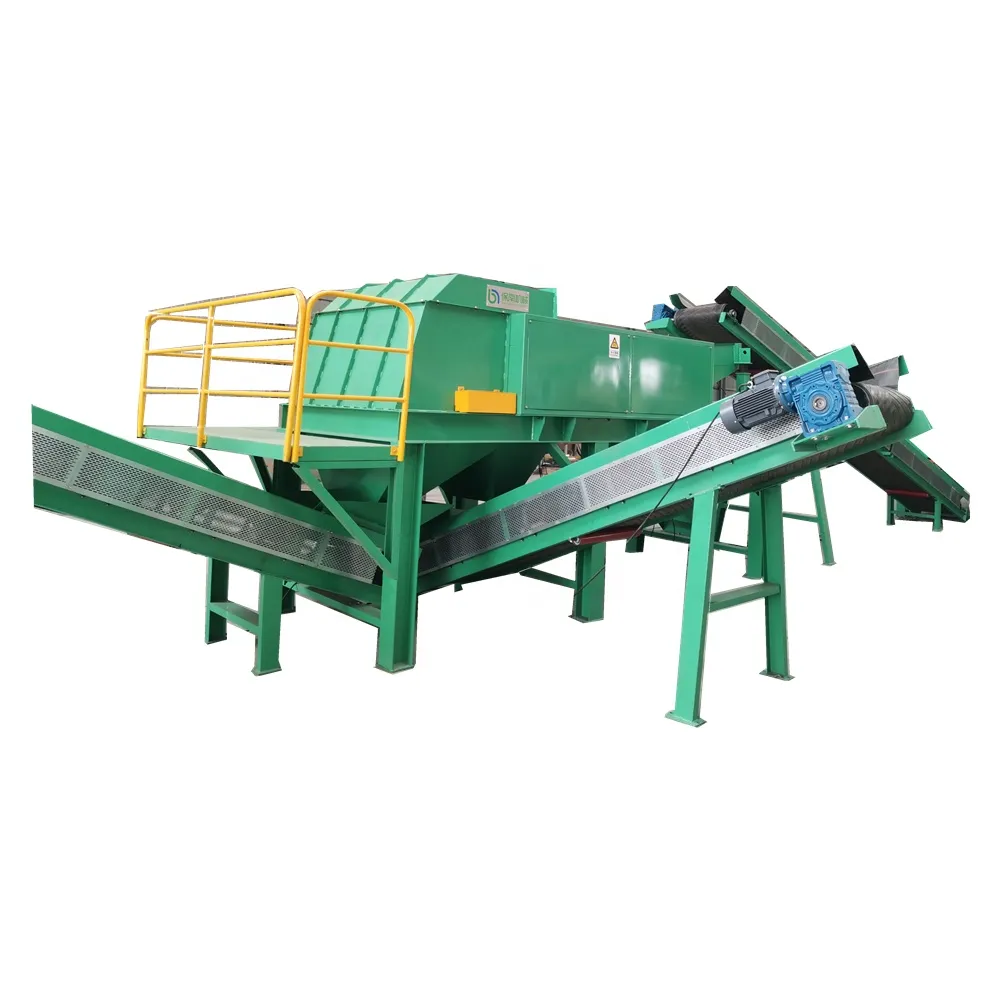

Noy . 17, 2024 04:15 Back to list
The Importance of Scrap Steel Shredders in Modern Recycling
As the world becomes increasingly aware of the need for sustainable practices, the recycling industry has gained significant momentum. Among the various components of this sector, scrap steel shredders play a crucial role in transforming recyclable materials into valuable resources. This article explores the function, benefits, and technological advancements of scrap steel shredders, emphasizing their importance in the circular economy.
What is a Scrap Steel Shredder?
A scrap steel shredder is a heavy-duty machine designed to shred large volumes of metal scrap into smaller pieces, making the subsequent recycling processes more efficient. These machines are capable of handling various types of steel, including end-of-life vehicles, industrial scrap, and construction debris. By reducing metal scraps into manageable sizes, shredders facilitate easier transport, processing, and eventual recycling into new steel products.
The Process of Shredding
The operation of a scrap steel shredder is relatively straightforward yet requires robust engineering to handle the intensity of the task. Typically, the process begins with collection and sorting of scrap metals. Once the materials are gathered, they are fed into the shredder. The shredder utilizes a series of sharp, heavy-duty blades that rotate at high speeds to pulverize the metal scrap. This results in metal fragments of various sizes and shapes, which can then be further sorted and processed for recycling.
Once the steel is shredded, it can be magnetically separated from non-metal materials, ensuring purity in the end product. The shredded metal can then be melted down in electric arc furnaces, where it is transformed into new steel products. This entire process underscores the efficiency and necessity of shredders in the recycling chain.
Benefits of Scrap Steel Shredders

The benefits of employing scrap steel shredders are multifold. Firstly, shredders greatly enhance the efficiency of the recycling process. By reducing the size of scrap metals, the shredding process allows for quicker melting and processing times. This directly translates to lower operational costs and increased productivity for recycling facilities.
Secondly, scrap steel shredders contribute to environmental sustainability. Recycling steel requires significantly less energy than producing new steel from raw materials, reducing greenhouse gas emissions and conserving natural resources. Using shredded steel in place of virgin material decreases the demand for mining and processing, further mitigating the environmental impact.
Additionally, shredding scrap metal ensures better safety and compliance within recycling operations. The potential for sharp edges and hazardous materials is significantly reduced when metals are processed into smaller pieces. This not only enhances workplace safety but also aligns with regulatory guidelines for handling and processing recyclable materials.
Technological Advancements
The industry surrounding scrap steel shredders has not remained static; recent technological advancements have significantly improved their efficiency and effectiveness. Modern shredders are equipped with advanced control systems that allow operators to fine-tune the shredding process. Features such as adjustable blade configurations, variable speed controls, and integrated monitoring systems enable better optimization of resource use.
Furthermore, innovations such as mobile shredders provide increased flexibility for recycling operations. These portable machines can be transported to various job sites, making it easier to process scrap metal on-location. This not only saves time and transportation costs but also minimizes the carbon footprint associated with moving heavy metals.
Conclusion
In conclusion, scrap steel shredders are an essential component of the modern recycling framework. Their ability to efficiently process large volumes of scrap metal into reusable materials supports both economic and environmental sustainability. As technology continues to evolve, we can expect even more innovations that enhance the efficiency of shredders, making them integral to a circular economy. Investing in these machines not only reflects a commitment to sustainable practices but also marks a crucial step towards a greener future. As we strive to reduce waste and conserve resources, the significance of scrap steel shredders in recycling cannot be overstated. Together, they help pave the way for a more sustainable world.
Latest news
Troubleshooting Common Eddy Separator Problems
NewsJul.04,2025
The Role of Metal Recycling Plants in Circular Economy
NewsJul.04,2025
The Impact of Recycling Line Pickers on Waste Management Costs
NewsJul.04,2025
Safety Features Every Metal Shredder Should Have
NewsJul.04,2025
How Industrial Shredders Improve Waste Management Systems
NewsJul.04,2025
How Cable Granulators Contribute to Sustainable Recycling
NewsJul.04,2025